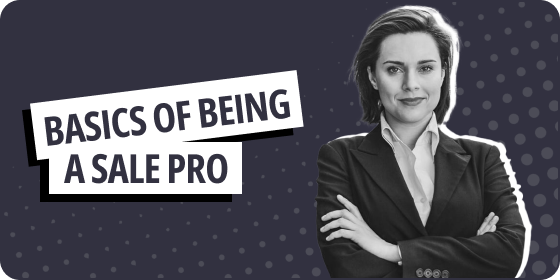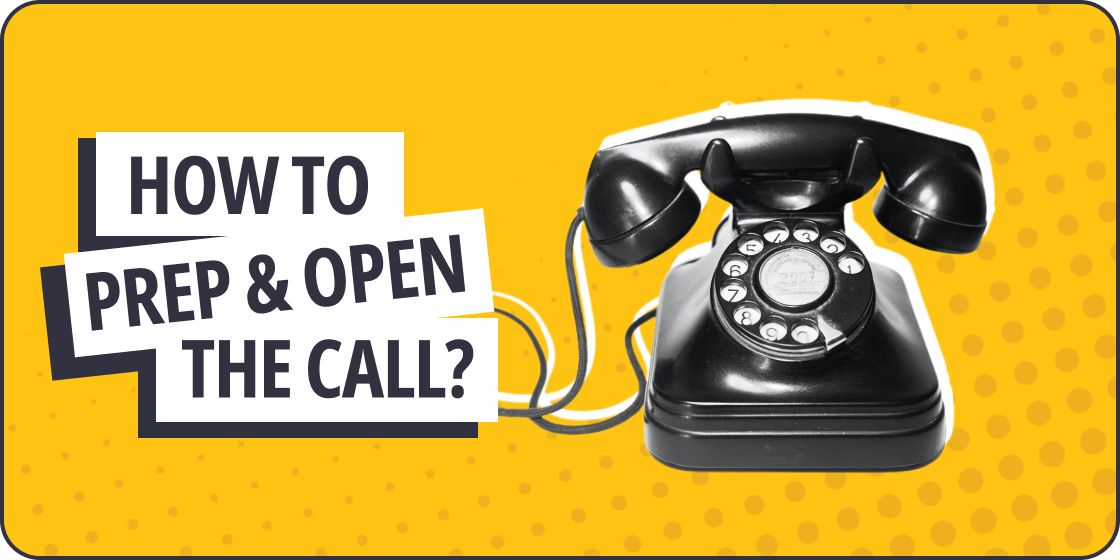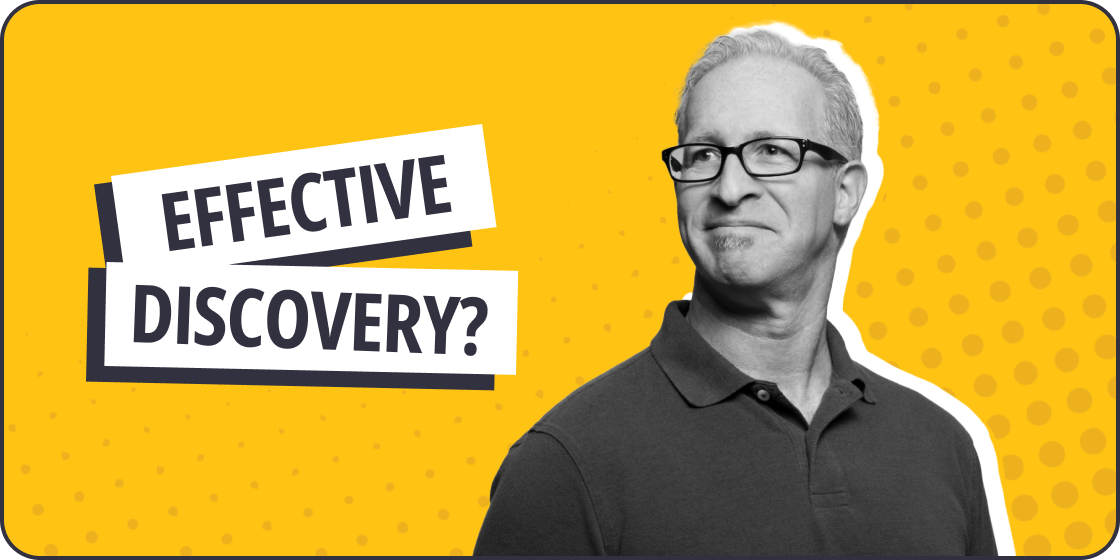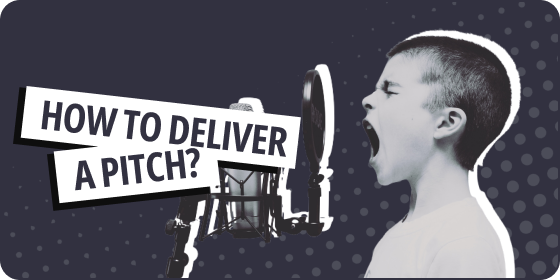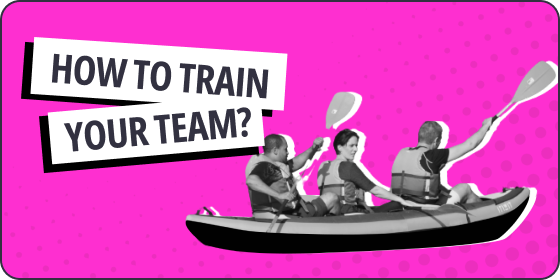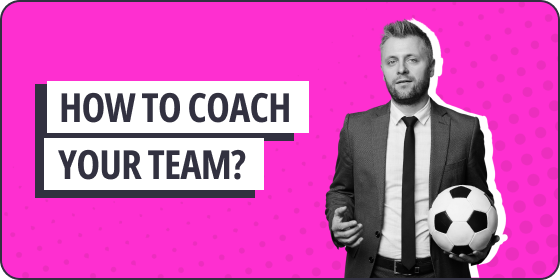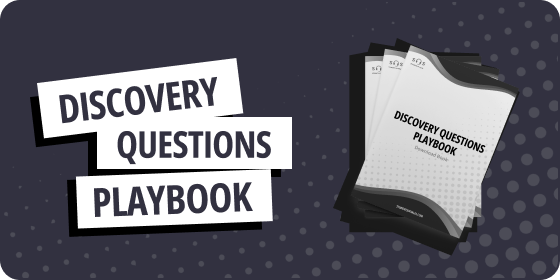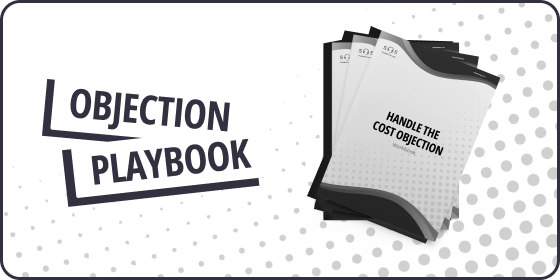How to be a Professional Listener

The Key to Your Full Potential in Sales
There is an old saying that goes, “a fool takes no pleasure in understanding, but only in expressing their own opinion.” In the modern world everyone talks about having a voice, wanting to be heard, having a say, expressing themselves and on and on and on. And that is probably great advice if you want to have a social media presence but about the worst approach you can take to sales.
The biggest mistake that young sales people make is that they believe the sales call is about them and their product. It is NOT! It is about your prospect, their problem and how they perceive it. The only way you can learn this is to listen.
In this article we are going to talk about listening:
- The dangers of being a poor listener
- Why sales people struggle with this (and why it’s not always your fault)
- How to be a great listener
As a salesperson, being a good listener is crucial to your success. Not only does it help you understand the needs and wants of your potential customers, but it also allows you to build trust and rapport with them. Unfortunately, most people overestimate their ability to listen, and this is costing them sales.
The Dangers of Being a Poor Listener:
- You lose the sale. Look, let’s just hit this right out of the gate. If you aren’t a great listener then you are a poor listener, it is that simple! Ultimately this will cost you sales.
- You don’t connect. There is a great example in the book “The Lost Art of Listening” by Michael Nichols where he talks about a lamp sat on the table near you. What would happen if you went over to it, right now, and cut the cord? Speaking without listening, hearing without understanding, is like snipping an electrical cord in two, then plugging it in anyway, hoping somehow that something will light up.
- You provide the wrong advice. This is why sales stall or die – you didn’t solve the right problem for your customer. Sure, you gave the best pitch of your life but you tackled it from the wrong angle! I always think of the classic auto sales example. Let’s say someone comes onto your lot and says, “I need a vehicle that is fast, gets incredible gas milage and fit in my small garage”. You are happy that you have exact solution for them – a motorcycle! Obviously that is an extreme but you can see that, by not listening to your prospect, you may not be providing the right solution, even when it’s sitting on your lot.
- You get happy ears. We all know the feeling. You get out of the meeting with the customer and you have to run over and tell someone about this “sure deal” you have coming in. You tell them about how qualified the prospect was, how you nailed every objection, how you showed a “no brainer” ROI, and this is a for sure deal! Only problem is, you forgot to lock down next steps and get a commitment. You were so wrapped up in what you thought you were hearing that you didn’t listen and this caused you to abandon your process and, ultimately, will cost you the deal.
- You get ghosted. This is probably one of the saddest things I see in sales. It starts with the above and ends with you chasing a customer that doesn’t want to be chased. I promise you, ghosting is 100% because you are a poor listener. They dropped all sorts of hints and, most likely, even outright told you that you didn’t have a sale but you were so wrapped up in them being qualified or the pitch you delivered that you didn’t hear any of it! Next time you get ghosted, go back and listen to your last call with that person, and I promise you that you’ll hear exactly why.
- Personal relationships. Being a poor listener will follow you outside of work and into your personal life. It will cause all sorts of havoc in your personal life; from friends to family to romantic interests. You know what they say, people fantasize about “tall, dark and mysterious” there is nothing mysterious about someone that won’t shut the hell up an listen. So, please, shut the hell up and listen.
Why sales people struggle with this (and why it’s not always your fault):
- Speak up! Like was mentioned above, this is advice we get very early on, “the squeaky week gets the grease”. We are told that we need to have a voice, to be vocal, share our thoughts, have a strong self-image, and be heard! This is great advice when working on your mental health or be active in your community but is deadly in a sales meeting.
- We think the meeting is about the product. It is NOT! The meeting is about the prospect, not your product. A sales professional understands this. They don’t spend their time mansplaining their features, the invest in learning about their prospect and their needs. Unfortunately, from the day a sales person takes their first sales role they are taught their “pitch”, the work on “objection handling” and even practice active listening. Complete horse shit. Get this, if you actually listen to someone, gasp, you don’t have to work on showing you are listening!
- Most people don’t listen, they only wait to speak. We all know those sales people that have the same questions and same killer lines on every sales call! Yeah, that is great if you are selling vacuums door to door but are worthless when you are selling high ticket items. Clients simply don’t care what you have to say, they want to know how you can help and you can’t understand that if you don’t listen.
- We want to share! This is the age we live in. Climb a mountain? What’s the point if you can’t put it on Instagram? Went for a run? Obviously that needs to be edited down for Tik-Tok! And what in the world is even the point of having breakfast if you an post about it on Facebook? Look at your Facebook feed right now and find someone that went on vacation. Say you have a cousin that went to New York, what do the comments say? Do they say, “how was it?” or “where did you go” or “what was your favorite thing you did?” Of course not. Every comment is about the person commenting! Every comment is “OMG, did you go see the statue of liberty, we went that last year and thought that was so cool” or “where did you stay, next time stay in Brooklyn it is has the best food!” or even “I am so happy for you”. Every comment is about the person commenting, not about the person that just posted. Me, me, me!
- They have never been taught to listen. Sales courses and sales influencers are all about “say this” or “use this method” and hand out talk tracks. They rarely focus in on listening.
- We want to solve their problem! This is a very noble intention, and this is what we are all taught – people don’t buy products, they buy a solution. Right? Close. There is a great scene in “White Men Can’t Jump” when Rosie Perez’ character says she is thirsty and Woody Harrelson’s character gets up to get her water. He is going to solve her problem. However, in one of the greatest explanations of empathy of all time, Rosie Perez explains to him “Honey, I said I was thirsty. I didn’t want a glass of water. I wanted empathy. I wanted you to say I know what it’s like to be thirsty.” Before you try to solve their problem, be sure you listen. Otherwise, you might end up being the problem.
- They don’t actually care. Ok, so this one actually kind of is your fault. Or your upbringing. If you are in sales and you don’t actually give a shit about your customers, then you are in the wrong line of work. It’s like being a doctor and not caring if you patient gets better.

How to be a great listener:
So, I have a million and one pieces of advice on how to be a great listener but the best advice I have ever seen is by Celeste Headlee in This Ted Talk. Below are some of the key points along with my little flair to each.
- Don’t multitask. I’m sorry, but you suck at multitasking. Everyone is. It is a scientific fact. When you are on with a prospect or in a sales meeting set everything else aside. Turn your email off. Turn your Slack notifications off. Turn off the television in the background. And, for the love of god, grow up and put your cell phone away. You are an adult, you don’t need you phone on you at all times like you are Linus with his little blanket.
- Don’t pontificate. As Celeste puts it, “if you want to state your opinion, write a blog”. I get it, you have opinions and insight that you are just dying to get out. Let that shit go! You have to set your agenda aside for a moment if you truly want to hear someone.
- Use open-ended questions. Most of the facts you can get without the prospect even being there. You aren’t looking for facts, you are looking for their feelings. Use questions like “how was your experience?” or “what was it like to…?” Get them to share their thoughts and their experiences. Let them describe it.
- Go with the flow. It is great to have a plan but, as Mike Tyson famously said, “everyone has a plan until they get punched in the mouth”. A conversation needs to be two way and, while you may have your qualifiers and great one-liners you are keen to get out, listen and go along with the prospect.
- Enter every conversation like you have something to learn. You don’t know everything, and no one is expecting you to. The single worst personality trait a person can have is being a “know it all”. Approach every person like there is something you can learn from them because, truth be told, there always is.
- Don’t equate your experience with theirs. All experiences are individual and, more importantly, it is not about you. You don’t need to take that moment to prove how amazing you are or how much you’ve suffered. I know, you were taught to tell a story or give an example using feel, felt, found or even show some customer testimonial but, and I cannot stress this enough, this is not about you, it is ALWAYS about your prospect.
- Stay out of the weeds. People couldn’t care less about the details. Hit the high points and move on. There is plenty of time for all of that stuff later. Getting into the weeds doesn’t just take the focus off of them but it is boring as hell. Instead of giving the details about your integration, your horse power or onboarding, give them a quick answer and find a way to get them talking again and find out why that is important to them.
- Don’t repeat yourself. Sales people love to do this. We have some amazing little catch phrase or power statement and we tend to repeat it over and over again. If they didn’t care the first time, they aren’t going to care this time.
- Be Brief. There is no better way to put this than, “a good conversation is like a miniskirt; short enough to retain interest but long enough to cover the subject.” Never use seven words when three will do.
- Focus on the speaker. The real reason most sales people feel anxiety on sales calls is because they are so focused on themselves they can’t help it. When you truly enter a conversation to listen, you can’t be bothered with your own feelings as you’ll be preoccupied with focusing on theirs. That is listening.
If there is one skill that will improve your life faster than nearly any other skill it is listening. I can guarantee you this, no one in the history of sales has ever listened themselves out of a sale. Your quality of life is directly impacted by your ability to communicate effectively with other people and, without listening, you are speaking, not communicating.
In ordinary listening we hear the words and think about how we perceive it. The focus remains on us. When professional sales people listen, we listen to not just the words but to what is behind the words; feelings and needs.







